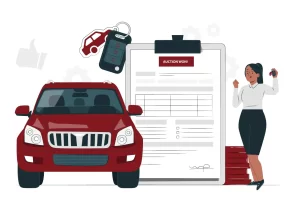Urban traffic congestion has become a global issue, significantly impacting the transportation industry, particularly in taxi York markets. In cities like York, taxi services are facing both new opportunities and challenges as urban congestion worsens and autonomous taxis become more prevalent. Effective solutions, such as electronic data exchange and integrated billing systems, are essential to address these issues. For example, cab billing for health insurance, including statutory health insurance like AOK, is increasingly important. Taxi software and billing tools are helping streamline operations and improve efficiency, enabling taxi companies to adapt to these changing conditions while meeting growing demand.
Simultaneously, there are more and more advanced technology (i.e., intelligent traffic system, autonomous vehicles, gkv data exchange, billing software, taxi software, health insurance etc.). Making efficiency metrics is critical to unlocking the potential of the Internet of Vehicles (IoV) in Intelligent Transportation Systems (ITS) for the taxi of car rental company- taxAb
Advantages of technology used by taxis
Intelligent Transportation Systems (ITS) in a taxi for electronic data exchange have had a huge influence on our lives and will be an important part of our modernised society. Radio frequency identification, wireless sensor networks, network coding, network energy, database storage, data mining, gkv data exchange, billing software, taxi software, health insurance and cloud computing security are just a few of the sophisticated technologies used in ITS. In recent years, a fundamental shift in ITS for the car rental company has been the collection of considerably more data from a number of sources and the processing of that data into various formats. In addition, a number of sophisticated interdisciplinary periodicals, such as Nature in 2008 and Science in 2011, began publishing special issues on big data stating reports for cab health transport billing AOK, health transport billing, and mobility strategies service provider such as software cab company, software for cab and rental cars accounting for health transport.
- Losing a competitive advantage as a result of data sharing is a major issue for cab aggregators; nonetheless, data sharing may help them expand for cab billing with health insurance such as statutory health insurance AOK, health insurance AOK.
- City planners should use data sharing to assure the availability of dedicated and efficient pick-up and drop-off zones, particularly at key public transportation hubs and high-demand activity centres for Taxi Krankenfahrten Abrechnung.
- Identifying high-demand areas for shared rides and giving incentives to shared ride operators can help to alleviate traffic congestion.
The disadvantage for taxis using technology
While data sharing is extremely advantageous, it comes with a number of drawbacks, ranging from data privacy to data quality.
- Individual privacy should not be jeopardised by data-sharing rules that assure optimum security in data management such as health insurance, gkv data exchange, taxi software and billing software.
- Real-time data involves sensitive personal information, such as statutory health insurance AOK, thus city planners should devise data security and anonymization solutions.
- Cab aggregator rules in India are still in the early stages, and the lack of a shared mobility policy framework is a key roadblock to securing data sharing from these companies.
Some governments have responded by enacting their own laws, such as the ‘Karnataka On-demand Transportation Technology Aggregators’ Rules,’ which require taxi aggregators to keep daily digital records of passenger information, health insurance, taxi software and billing software journey origin and destination, and fare collected.
- However, ineffective implementation of these standards, as well as a lack of communication among parties, resulted in a dataset that was fragmentary and inadequately gathered. However, ineffective implementation of these standards, as well as a lack of communication among parties, resulted in a dataset that was fragmentary and inadequately gathered.
Conclusion
CA data can be useful in establishing a robust basis to support solutions, billing software laws such as cab health transport billing AOK, health transport billing, and mobility strategies service provider such as software Cab Company, software for cab and rental cars accounting for health transport for the shared economy ecosystem in India, given the shifting environment of urban mobility. Recognizing the data’s potential is the first step in establishing a policy framework for data exchange, accessibility, and utilisation. Data sharing regulations for the CA ecosystem can be critical for data-driven city planning and can aid in the development of a healthy data-sharing culture.
To accomplish this result, it is critical to ensure efficient communication between the CA and local authorities, as well as to recognise the motives and dangers that each party faces. To appropriately inform policy, it is necessary to learn from global experience, develop flexible data sharing norms, develop applicable data analysis platforms, and build ability to analyse and infer the acquired data. Better enforcement of these regulations might lead to the development of a well-considered state-level policy framework to change the urban transportation system.




